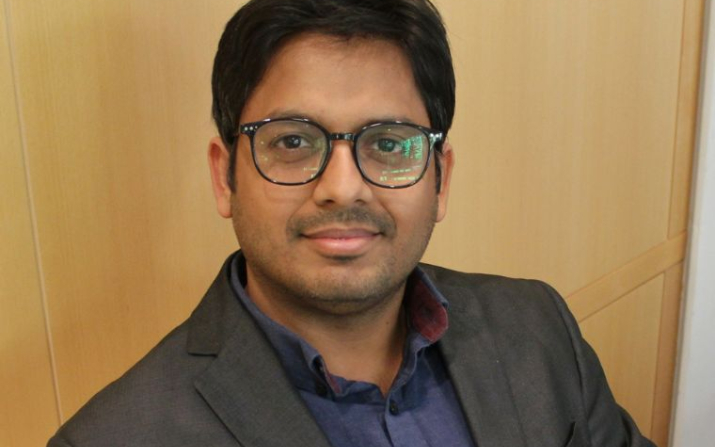Postdoc Spotlight of the Month: Pawan Tripathi

Originally from Sidhauli, India, Pawan Tripathi is no stranger to his academic pursuits taking him abroad. A postdoctoral scholar in the Department of Materials Science and Engineering at Case Western Reserve University, Tripathi recently attended an international conference in Japan to present his work on materials data science.
Based in the Center of Excellence for the Materials Data Science for Stockpile Stewardship (MDS3), Tripathi’s research explores machine learning and data-science models with large, multidimensional datasets.
In Japan, he spoke at a seminar for the Graduate School of Information Sciences (GIGS) at Tohoku University and worked as a visiting research fellow at the Unprecedented-scale Data Analytics Center. In his talk with GIGS, he explored “Data-driven Automated Analysis Pipelines for High-energy Synchrotron Beamline 2-D XRD Datasets.” His talk also touched upon “FAIRification” principles in developing automated analysis pipelines removing human intervention and enabling the development of AI-guided accelerated analysis.
Tripathi’s visit at Tohoku University also served another purpose: It was an opportunity to exchange research and opinions on the ongoing collaboration between the MDS3 research center at CWRU with GIGS. The collaboration is focused on addressing the big data challenge posed by the newly established next-generation Synchrotron Radiation Innovation Smart (SRIS) facility. The current data science practices being developed at the MDS3 at CWRU can accelerate the analysis by providing solutions for storing, managing, and analyzing massive datasets.
Learn more about Tripathi and his experiences as a postdoc at CWRU in this month’s spotlight.
What has been your best experience so far as a CWRU postdoc?
As a postdoctoral researcher at MDS3, I have had the privilege of working in a stimulating interdisciplinary research environment at CWRU. This experience has not only enabled me to enhance my technical skills but also equipped me with the knowledge of how to manage and run a research group, which will be invaluable in my future academic pursuits.
Working in a big multidisciplinary team of almost 50 people from computer and data science and materials science is challenging but also very rewarding, as it provided me an opportunity to learn from the experts on some of the real-world data-related problems like analyzing big datasets of XRD, and XCT from the synchrotron facilities using state-of-the-art data science methods and practices such as FAIRification, deep-learning, and big foundation neural-network models.
Current development in the field of data science at our MDS3 center has innovative solutions for the challenges posed by big facilities producing enormous amounts of data and learning about these techniques has helped me in getting updated to the current advancements in the field.
What’s your best advice on how postdocs can make the most of their postdoc careers and prepare for their future goals?
- Stay up to date with the current knowledge in your research area and any potential applications in the industry/labs.
- Set clear career goals: It’s important to have a clear idea of what you want to achieve during your postdoc and beyond.
- Identify your long-term career goals and create a plan to achieve them.
- Develop transferable skills: Postdocs can benefit from developing skills that are in demand in industry and other sectors. Consider taking courses or workshops in project management, communication and leadership.
- Publish regularly: Publications are key to building a successful academic career. Aim to publish your research in high-quality journals and present your work at conferences.
- Explore alternative career paths: Academia is not the only career path available to postdocs. Take the time to explore other options, such as science policy, science communication or industry.
- Moreover, a postdoc is a valuable opportunity to gain experience, develop skills and build a network. By taking a proactive approach to your career, you can maximize this opportunity and set yourself up for future success.
